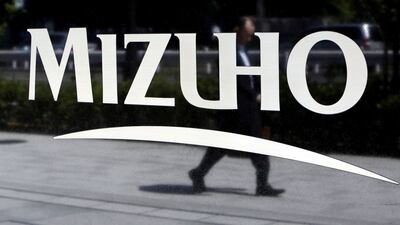Mizuho Financial Group chief executive Tatsufumi Sakai will step down after Japan’s banking regulator issued a business improvement order on the lender, criticising it for shortcomings in governance and corporate culture behind a series of system glitches this year.
The Financial Services Agency said Mizuho did not pay enough attention or consideration to risks within its computer systems, according to a statement on Friday. The regulator also said Mizuho failed to learn from past incidences and asked the bank to clarify who is responsible for the outages.
Mizuho said Mr Sakai will step down on April 1 and the country’s third-biggest lender will accelerate efforts to select his successor. The bank will hold a press conference at 9pm Tokyo time on Friday.
It marks the culmination of a months-long inspection by the country’s watchdog into Mizuho to identify the root causes of the technical failures. The regulator originally planned to finish the inspection a lot earlier but had to extend it after the bank suffered fresh incidents in August and September.
A number of the group's top brass will also be leaving on April 1, including: Koji Fujiwara, the chief executive of Mizuho Bank, who will be replaced by Masahiko Kato; Satoshi Ishii, who is currently the bank's IT head; and chairman Yasuhiro Sato, who will stay until late June when new board members are chosen.
Mizuho has been plagued by major IT problems since it was created from the merger of three lenders more than two decades ago. The smallest of Japan’s three megabanks has also been struggling to catch up with bigger rivals which are expanding beyond traditional lending into investment banking and wealth management.
Key findings of the FSA found that Mizuho lacked awareness for the impact on its clients, it did not pay enough attention or consideration to client-facing businesses and lacks capacity to rectify problems itself as common failures across past incidents in 2002 and 2011 have happened again.
The series of incidents started in February, when ATMs swallowed more than 5,000 cash cards and passbooks. A month later, a hardware failure caused a delay in 300 foreign-currency money transfers. There have been eight such incidents so far this year.
Mizuho had re-emphasised its pledge not to repeat system failures after incidents in 2002 and 2011. Each time, the bank received business improvement orders from the regulator.
Mr Sakai, who became chief executive in 2018, has been trying to reshape the bank and change its corporate culture. He made major modifications to its organisational structure to focus resources on growth areas and rein in costs. Despite the system troubles, Mizuho reported sharp profit growth for the first half ending in September and announced the first dividend hike in seven years.

